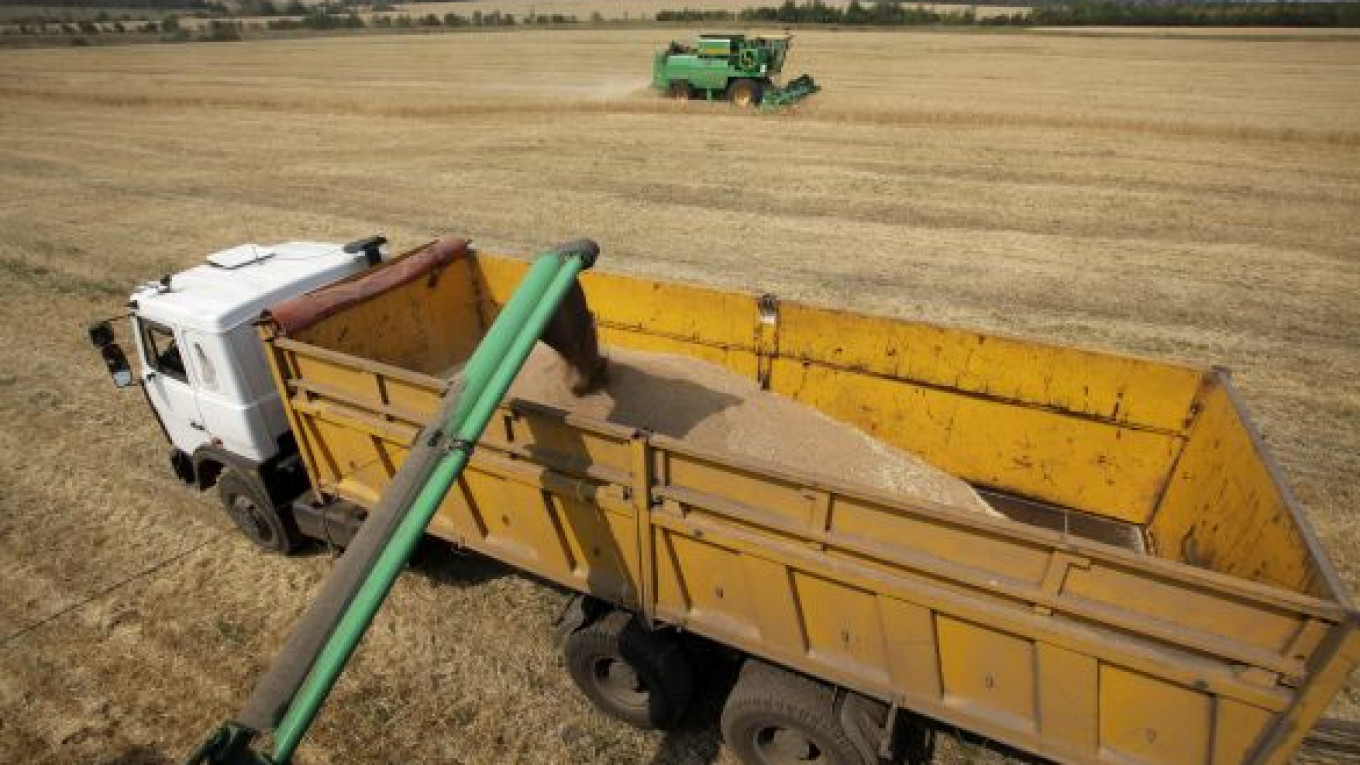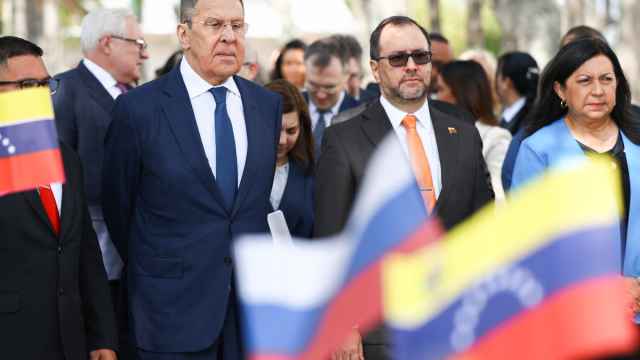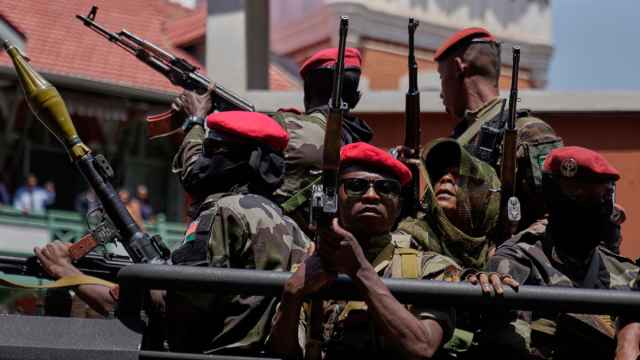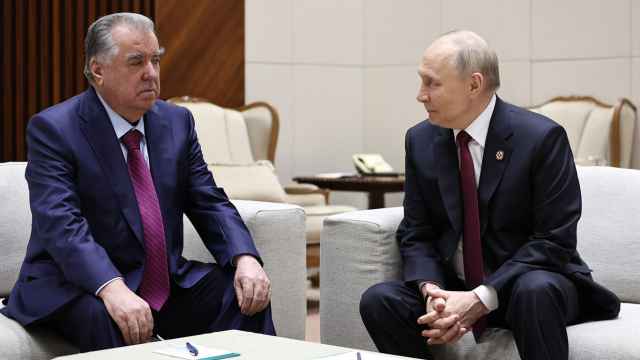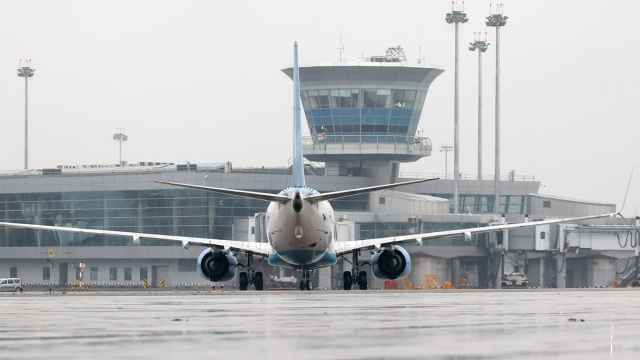Last year's world top-three grain exporter Russia has seen its ambitious export plans thwarted by catastrophic drought but will regain its footing in traditional markets, analysts say, even as rivals exploit its export ban.
Price competitiveness will be its main draw in satisfying traditional markets in North Africa and the Middle East and carving out new markets in Asia.
Russia, which has not imported grain in large quantities for about a decade, is estimated by some to need grain imports of up to 5 million metric tons this year, a body blow to a nation keen on becoming a dominant exporter.
"First of all, we must restore an exportable surplus, which does not appear to be easy under current circumstances," said Dmitry Rylko, director of the Institute for Agricultural Market Studies analytical center.
"When we restore the surplus, which will definitely take place sooner or later, we will gradually re-establish our relations with all the key buyers," he said.
Rylko said that if Russia offered competitive prices, which it has done in previous years, the customers would come back.
Egypt, the world's biggest wheat importer, and a key purchaser of Russian grain, has been disappointed by Russia's export ban, which runs from mid-August to the end of the year and is intended to conserve stocks and head off inflation.
Egypt said Aug. 17 that it had bought 360,000 tons of wheat from France since the export ban began, and neighboring buyers are increasingly turning to other rivals including Germany, Canada and the United States.
Jordan, for example, has bought 200,000 metric tons of German wheat this month, while Lebanon bought 50,000 tons of wheat from the United States and optional U.S., Canadian or German origin, citing disruption from the Russian export ban.
"A temporary suspension of Russian exports does not mean a complete loss of those markets," said Andrei Sizov, chief executive of SovEcon agricultural analysts.
"The Russian grain will be in demand on those markets, as it is cheap and competitive and its quality is rather good."
International grain futures prices hit two-year highs early in August, doubling from June lows as the extent of Russia's drought unfolded.
Russia's worst drought in at least a half-century is estimated to have cut the country's grain crop by a quarter, a big setback after bumper harvests in 2008 and 2009.
"The bad 2010 crop will definitely pour some cold water on the ambitious grain export plans of Russian politicians," SovEcon's Sizov said.
"It is very likely that politically motivated but economically infeasible declarations on the need to create an 'eastern corridor' to the markets of Japan, China and the like will be forgotten until the next abundant crop," he said.
The abundant bumper 2008 crop of 108 million tons prompted Russia to announce an ambitious plan to raise production by 50 percent in the next 15 years and to double grain exports to 40 million to 50 million tons.
The major driving force behind the plan was the state grain trader, United Grain Company, which aimed to become Russia's top exporter by shipping 16 million tons of grain by 2015 from an exportable surplus forecast to reach 40 million tons.
UGC and its strategic partner, the Russian grain transport company, estimated that infrastructure development by 2015 would require about $3.3 billion.
To build new grain terminals and to upgrade the existing ones alone, some $800 million will be needed, they estimated.
Moscow has also announced plans to increase exports to Southeast Asia and to win new markets such as China and Japan.
Asia should become a key market for Russian grain, the Russian Grain Union lobby group has said. It had expected grain shipments to Asia to triple or quadruple to between 1.5 million and 2 million tons by 2012, from an estimated 500,000 tons in 2009.
Russia's market comeback, while seen probable, will be difficult to predict, however, even as rains push into some parched areas making winter wheat planting for harvesting in 2011 a little easier.
First Deputy Prime Minister Viktor Zubkov has said the drought may cut the area to be sown with winter grains for the 2011 crop by one-third to 12 million hectares, so farmers will have to sow an extra 6 million hectares with spring grains.
Sizov said investments in agriculture in the last two years have been declining, and therefore a production level of 100 million tons a year, let alone the targeted 150 million tons, is unlikely anytime soon.
"Currently, we can only say that if Russia harvests 75 million to 80 million metric tons, this will be a big achievement," he said.
Russia's total grain crop this year is officially expected to reach 60 million to 65 million tons, although some see it struggling to get above 60 million this year, way down from last year's 97 million-ton crop.
Exports, if they restart next year, would be relatively low, up to 10 million tons. The carry-over stocks will fall drastically and will not support intensive exports as in the previous two years and in July this year.
Sizov said that although Russia may put some infrastructure plans on hold, it will be still developing infrastructure in the south of the country — the gateway to "large and stable markets like Egypt, Turkey, Syria."
A Message from The Moscow Times:
Dear readers,
We are facing unprecedented challenges. Russia's Prosecutor General's Office has designated The Moscow Times as an "undesirable" organization, criminalizing our work and putting our staff at risk of prosecution. This follows our earlier unjust labeling as a "foreign agent."
These actions are direct attempts to silence independent journalism in Russia. The authorities claim our work "discredits the decisions of the Russian leadership." We see things differently: we strive to provide accurate, unbiased reporting on Russia.
We, the journalists of The Moscow Times, refuse to be silenced. But to continue our work, we need your help.
Your support, no matter how small, makes a world of difference. If you can, please support us monthly starting from just $2. It's quick to set up, and every contribution makes a significant impact.
By supporting The Moscow Times, you're defending open, independent journalism in the face of repression. Thank you for standing with us.
Remind me later.


